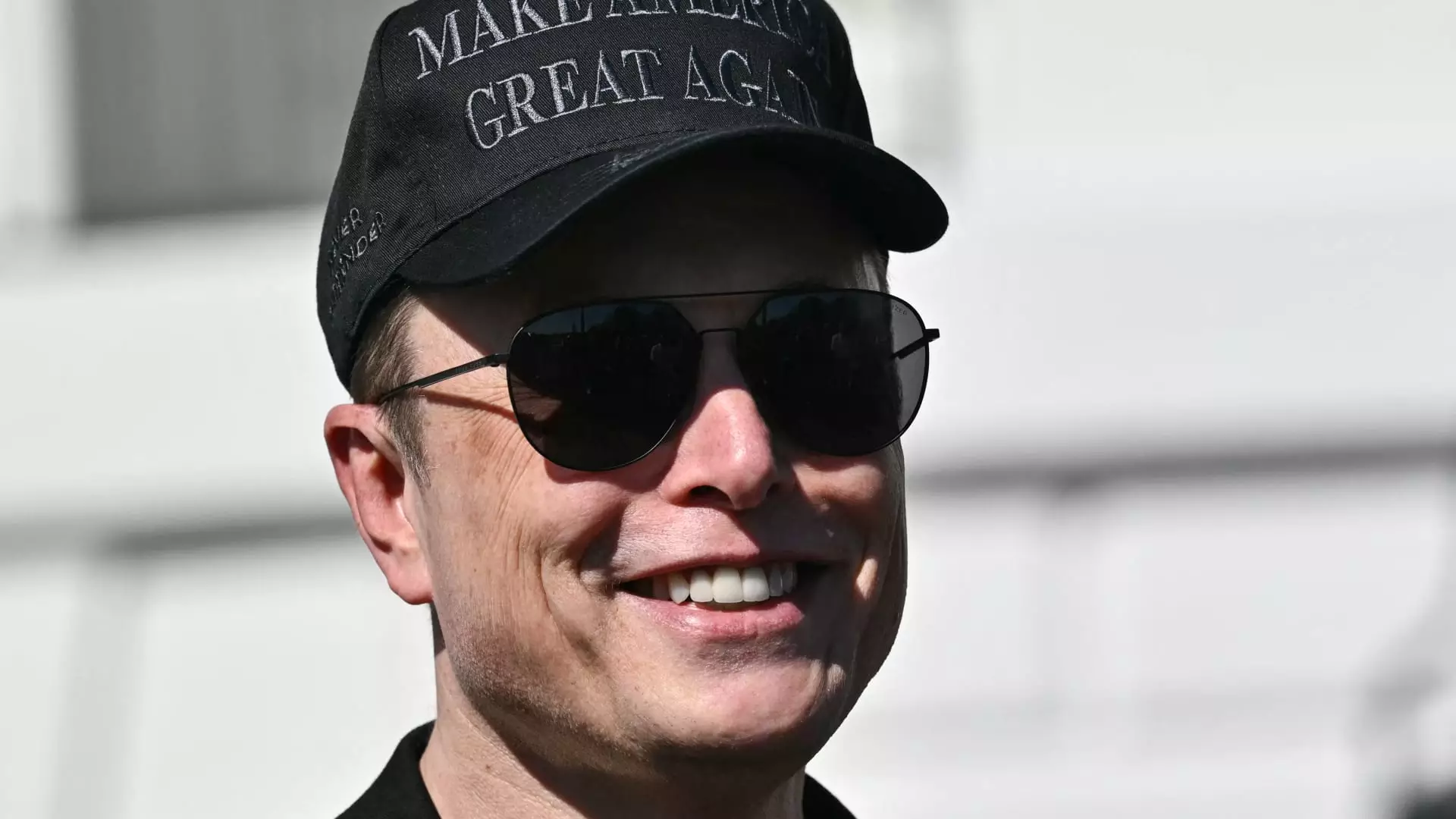Tesla’s stock has had an unpredictable journey lately, experiencing a staggering 15.4% drop—its worst decline since September 2020—earlier this week. Following a brief recovery, the stock saw a modest increase, rising by 8% in early trading. Yet these fluctuations raise doubts about the strength of Tesla’s market position. A company that once soared under the stewardship of its visionary CEO, Elon Musk, is now grappling with a grim reality. The electric vehicle (EV) giant, which was once the darling of Wall Street, is becoming increasingly vulnerable amidst growing recession fears and legislative uncertainty.
Political Undercurrents and Tariff Troubles
The relationship between Tesla and the political landscape is becoming increasingly fraught. With President Trump now in office, Tesla’s stock initially surged due to speculative bets on Musk’s close ties with the administration. However, this has led to expectations that are proving overly optimistic. The looming threat of tariffs has intensified concerns about supply chain reliability, particularly from key supplier nations. Such turbulence is setting off alarm bells, not only for Tesla’s immediate market but for the broader tech sector, which recently erased $750 billion in market value. The specter of a trade war is a direct threat to the future profitability of EV manufacturers.
The Burden of Brand Erosion
Tesla’s recent difficulties are compounded by brand erosion stemming from Musk’s incendiary remarks on the social media platform X. Political rhetoric has a way of alienating consumers, and Tesla appears to be feeling the pinch. Polls reveal a staggering 85% of investors believe that the interplay of politics and social media is actively damaging the Tesla brand. This loss of consumer trust is not merely an afterthought; it represents a direct challenge to Musk’s vision of democratizing EVs for the mass market.
Competing Forces and Internal Challenges
The competitive landscape for EVs is heating up. New entrants in the market are enhancing their offerings, making it increasingly difficult for Tesla to maintain its first-mover advantage. Declining vehicle deliveries only exacerbate these challenges. Wall Street analysts are deeply divided; while some continue to place their faith in Musk’s ability to innovate—and his intentions to launch an affordable EV model—others are sounding alarms over the company’s stagnating performance.
Market Sentiment: Bulls vs. Bears
The narrative around Tesla has turned decidedly mixed. While there exists a dedicated base of bullish investors clinging to their belief in Musk’s vision—especially in the face of potential service expansions like a driverless ride-hailing network—many are increasingly adopting a bearish outlook. The absence of robust new deliveries and increasing competition fundamentally challenge Tesla’s market capitalization.
Tesla’s volatile stock performance reflects more than mere market jitters; it symbolizes the challenges faced by a company that has tied itself closely to a politically charged environment. While optimism still exists, it is increasingly confronted with hard realities.

